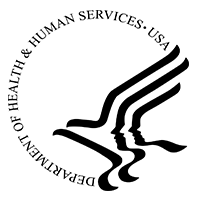
National Institutes of Health
Up to 50% OFF!
The National Institutes of Health is seeking applications for the Global Infectious Disease
Research Training Program.
This Funding Opportunity Announcement (FOA) encourages joint
applications for the Global Infectious Disease (GID) Research Training programs
from U.S. and low- and middle-income country (LMIC) institutions. The
application should propose a collaborative training program that will
strengthen the capacity of a LMIC institution to conduct infectious disease
research not including HIV/AIDS.
FIC will support research-training programs that
focus on major endemic or life-threatening emerging infectious diseases,
neglected tropical diseases, infections that frequently occur as co-infections
in HIV infected individuals or infections associated with non-communicable
disease conditions of public health importance in LMICs. Training related
to prevention, treatment or public health approaches to any technical area of
basic, epidemiology, clinical, behavioral or social science health research may
be supported.
Research Training programs should incorporate
didactic, mentored research and professional development skills components to
prepare individuals for careers that will have significant impact on the
priority health research needs of LMICs.
This Funding Opportunity Announcement (FOA)
allows support of trainees as the lead investigator of an independent clinical
trial; or a separate ancillary clinical trial or proposing to gain research
experience in a clinical trial led by another investigator, as part of their
research and professional development.
Objectives
The objectives of the Global Infectious Disease
Research Training program are:
- To develop research training
opportunities and professional development activities for a cadre of LMIC
scientists and health research professionals to strengthen the capacity to
conduct independent, sustainable infectious disease research at a LMIC
institution.
- To provide mentored
training-related infectious disease research experience that is directly
relevant to the health priorities of the LMIC.
- To strengthen the capabilities
of trainees at LMIC institutions to lead, manage and train others in
infectious disease research.
Each program should provide LMIC trainees
rigorous research training i.e. relevant advanced coursework, mentored research
experience and appropriate technical and professional skills development.
Research training should provide each LMIC trainee with:
- A strong foundation in research
design, methods, and analytic techniques appropriate for the proposed
infectious disease research area;
- Enhancement of their ability to
conceptualize and think through research problems with increasing
independence;
- Experience conducting
infectious disease research using state-of-the-art methods as well as
presenting and publishing their research findings;
- Opportunities to interact with
members of the scientific community at relevant scientific meetings and
workshops; and
- The enhancement of their
overall understanding of the health-related sciences and the relationship
of their research training to health and disease.
The Global Infectious Disease Research Training
programs should be designed to move beyond training a number of individuals for
the next career level to demonstratively increasing sustainable, independently
resourced infectious disease research capacity at the proposed LMIC
institution. It is expected that the training strategies employed will contribute
to measurable enhancement of explicitly defined infectious disease research
capacity outcomes.
The proposed institutional infectious disease
research training program may complement other ongoing research training and
career development programs at the LMIC institution, but the proposed program
must be clearly distinct from related programs.
Funding Information
- Application budgets are limited
to $230,000 per year for new awards and $276,000 per year for renewal
awards (total direct costs).
- Duration: The maximum project
period allowed is 5 years.
Eligibility Criteria
- Higher Education Institutions
- Public/State Controlled
Institutions of Higher Education
- Private Institutions of Higher
Education
The following types of Higher Education
Institutions are always encouraged to apply for NIH support as Public or
Private Institutions of Higher Education:
- Hispanic-serving Institutions
- Historically Black Colleges and
Universities (HBCUs)
- Tribally Controlled Colleges
and Universities (TCCUs)
- Alaska Native and Native
Hawaiian Serving Institutions
- Asian American Native American
Pacific Islander Serving Institutions (AANAPISIs)
- U.S. Territory or Possession
Other
- Non-domestic (non-U.S.)
Entities (Foreign Institutions)
The sponsoring institution must assure support
for the proposed program. Appropriate institutional commitment to the program
includes the provision of adequate staff, facilities, and educational resources
that can contribute to the planned program
Post Date - 10 -Jun-2020
Latest grants
Need help with your grant proposal? Learn Grant Writing & Create an account to filter grants by your country.